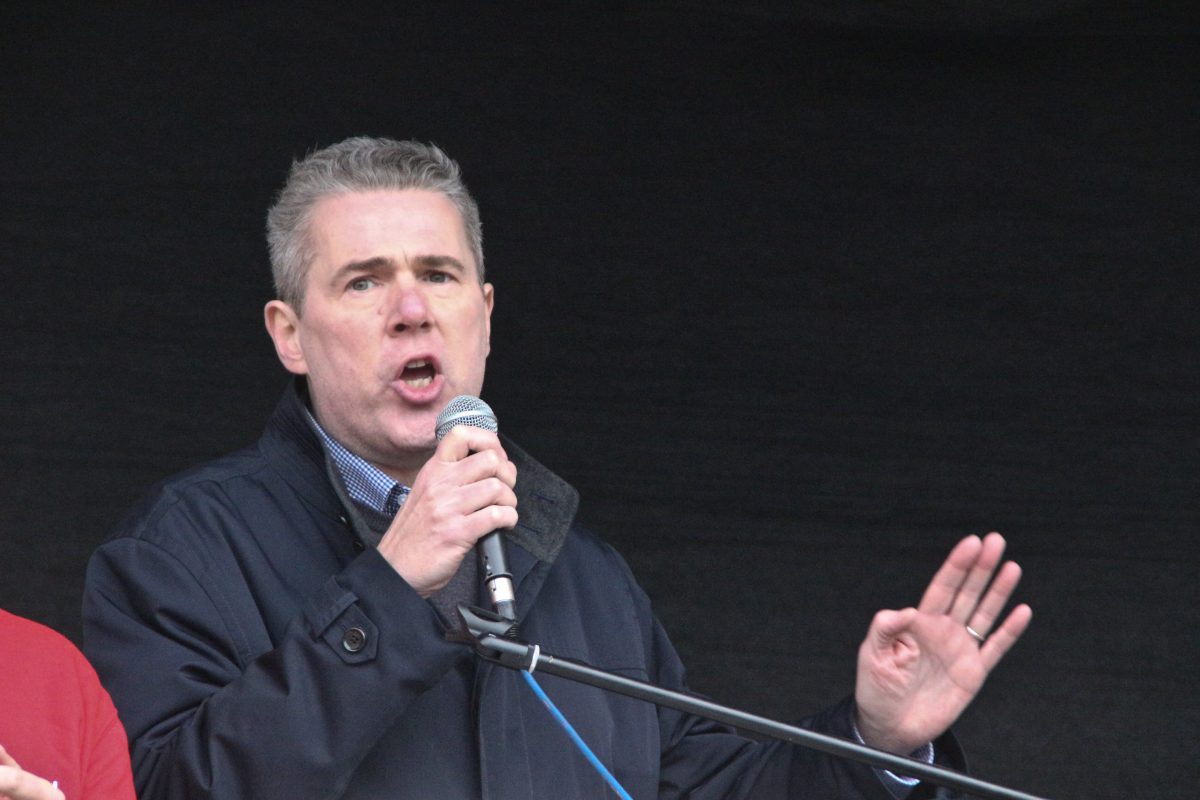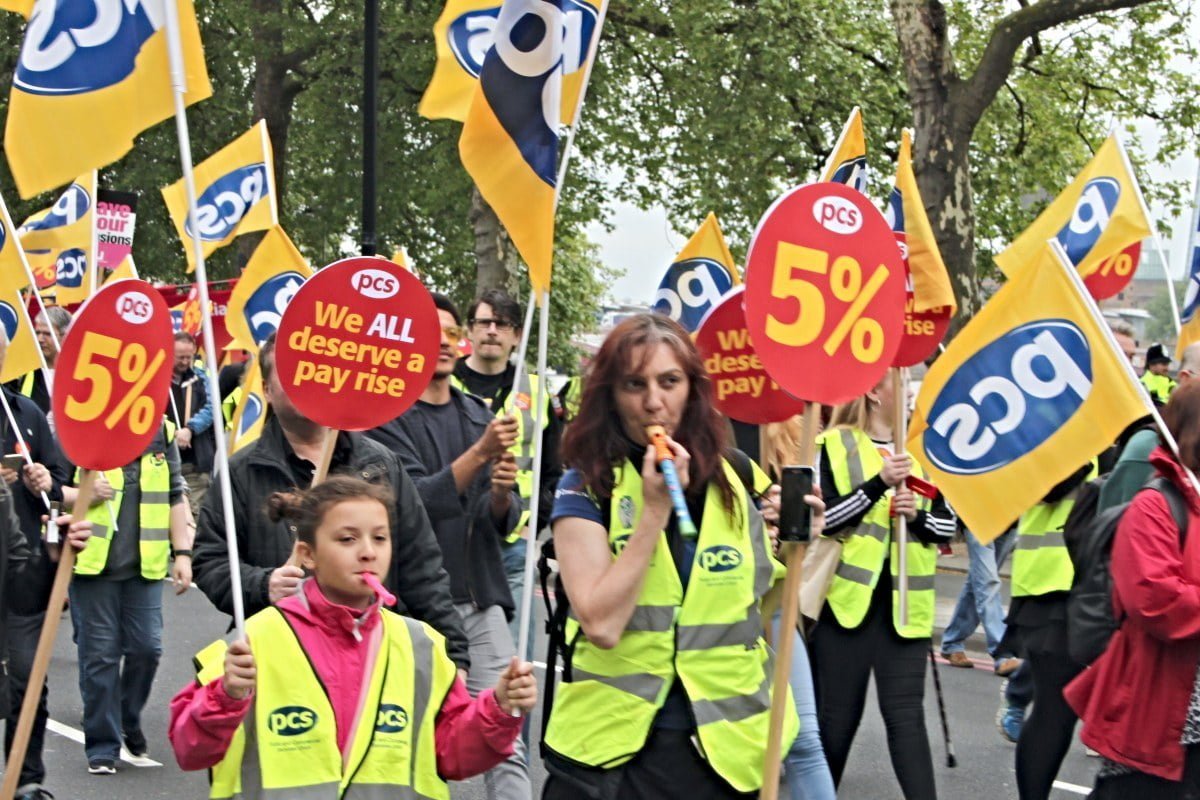Civil servants will be balloted for strike action in the coming months as part of the PCS union’s ongoing struggle over pay. A successful strike could deliver a strong blow against this fragile Tory government.
The national executive committee of PCS, the civil service union, has unanimously decided to hold a ballot of over 120,000 members working in key government departments for industrial action over pay. The ballot will open on 18 March and close on 29 April.
Workers from across the civil service will be balloted for strike action, as well as for disruptive action short of a strike, which would take place in May.
Last year, the union held a similar ballot. Despite a massive vote for action, the turnout narrowly failed to reach the government-imposed legal limit.
The union hopes that a well-prepared fighting campaign, focusing on strengthening local union organisation, will this time break through the barrier set by the Tories and deliver the action needed.
PCS is demanding a fully-funded pay rise significantly above the rate of inflation, along with national pay bargaining across the civil service and related areas.
Average pay amongst civil servants has fallen in real-terms by around 10% since 2010. As a result there is growing anger at deteriorating living standards.
Union activists will do everything in their power to deliver a success in this strike ballot. If the strike goes ahead, it will be the biggest walkout by civil service workers since the coordinated pensions’ strike of 2011.
 PCS general secretary Mark Serwotka said:
PCS general secretary Mark Serwotka said:
“Never has it been more necessary to have a well-paid and well-funded civil service than at a time of great uncertainty over Brexit.
“Yet what we have seen is a monumental betrayal of hard-working staff in civil service departments over pay. Our members were led to believe that the pay cap had been lifted last year. Instead civil servants were singled out for unfair treatment and a de facto pay cap remained in place.
“PCS members have had enough and after years of real terms wage cuts, will now be balloted with the aim of launching targeted and sustained strike action which will have a significant effect on key government departments.”
He went on to say: “Ministers need to understand the very real anger that our members feel and seek to immediately reward their staff with a pay rise significantly above the rate of inflation.”






